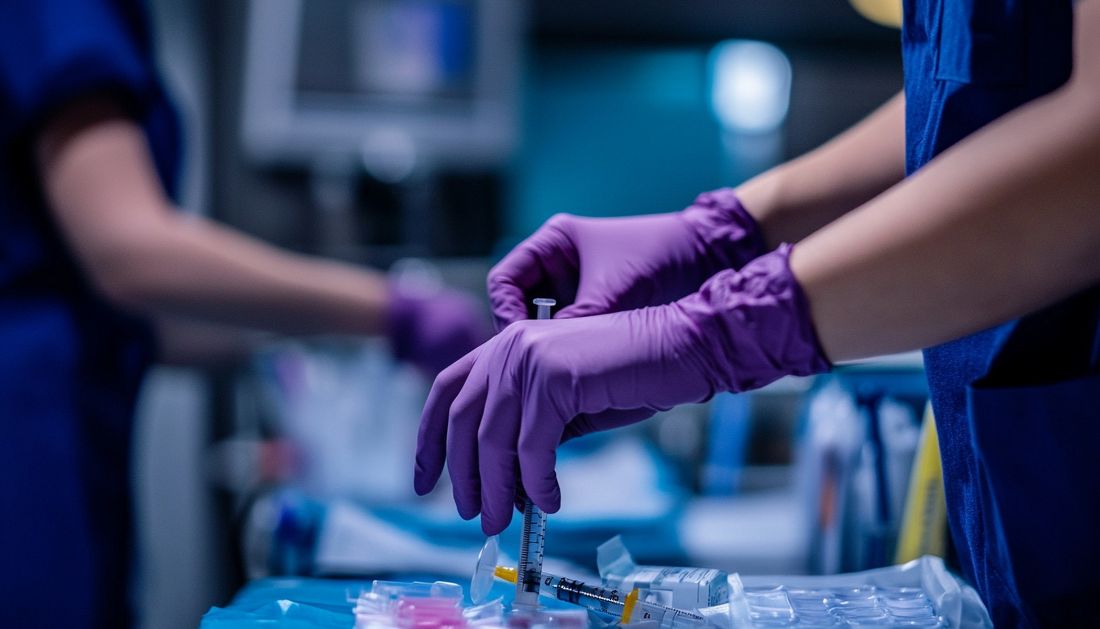

A groundbreaking project from the University of South Australia (UniSA) is set to transform how gastrointestinal (GI) cancers are detected and treated. Backed by a $405,050 AEA Ignite Grant, researchers are developing a quantum technology-based laparoscopic probe that enables surgeons to more precisely locate cancerous lymph nodes—minimizing tissue removal and improving recovery.
Quantum Technology in Cancer Surgery: How It Works
The probe integrates state-of-the-art quantum sensors with Ferronova’s iron-oxide nanoparticle formulation (FerroTrace) to detect cancer spread more accurately. Unlike traditional surgical methods that often involve removing large sections of tissue—leading to complications and long-term side effects—this innovation supports safer, minimally invasive procedures.
“By embedding quantum sensors into a laparoscopic probe, we aim to make surgeries more targeted and less traumatic for patients,” says Dr. Nicole Dmochowska, lead researcher at UniSA’s Future Industries Institute.
Clinical Promise and Market Potential in Cancer Surgery
The research team has already proven the feasibility of quantum sensor magnetometer probes in a successful oral cancer clinical trial. This next phase focuses on miniaturizing the technology for laparoscopic surgeries.
With GI cancers among the deadliest globally, and the global market for precision cancer tools projected to surpass $2 billion annually, the commercial and clinical potential is enormous.
Quantum Technology in Cancer Surgery: A Safer, Smarter Approach
Unlike current lymph node mapping methods that rely on radioactive tracers, the quantum probe and FerroTrace offer a safer alternative, especially for patients undergoing chemo or radiation before surgery.
“This could be a paradigm shift in cancer treatment,” says Dr. Aidan Cousins, senior researcher at Ferronova. “It’s about giving patients better outcomes and a better quality of life.”
Preclinical Trials for Quantum Cancer Surgery Technology
The next step: develop a fully functional, validated prototype for large animal trials, a key milestone before human clinical trials. This project aligns with Australia’s national priorities in both medical innovation and quantum technology, and could shape the future of cancer surgery worldwide.
For more information: University of South Australia
more recommended stories
 Caffeine and SIDS: A New Prevention Theory
Caffeine and SIDS: A New Prevention TheoryFor the first time in decades,.
 Microbial Metabolites Reveal Health Insights
Microbial Metabolites Reveal Health InsightsThe human body is not just.
 Reelin and Cocaine Addiction: A Breakthrough Study
Reelin and Cocaine Addiction: A Breakthrough StudyA groundbreaking study from the University.
 Preeclampsia and Stroke Risk: Long-Term Effects
Preeclampsia and Stroke Risk: Long-Term EffectsPreeclampsia (PE) – a hypertensive disorder.
 Statins and Depression: No Added Benefit
Statins and Depression: No Added BenefitWhat Are Statins Used For? Statins.
 Azithromycin Resistance Rises After Mass Treatment
Azithromycin Resistance Rises After Mass TreatmentMass drug administration (MDA) of azithromycin.
 Generative AI in Health Campaigns: A Game-Changer
Generative AI in Health Campaigns: A Game-ChangerMass media campaigns have long been.
 Molecular Stress in Aging Neurons Explained
Molecular Stress in Aging Neurons ExplainedAs the population ages, scientists are.
 Higher BMI and Hypothyroidism Risk Study
Higher BMI and Hypothyroidism Risk StudyA major longitudinal study from Canada.
 Therapeutic Plasma Exchange Reduces Biological Age
Therapeutic Plasma Exchange Reduces Biological AgeTherapeutic plasma exchange (TPE), especially when.

Leave a Comment